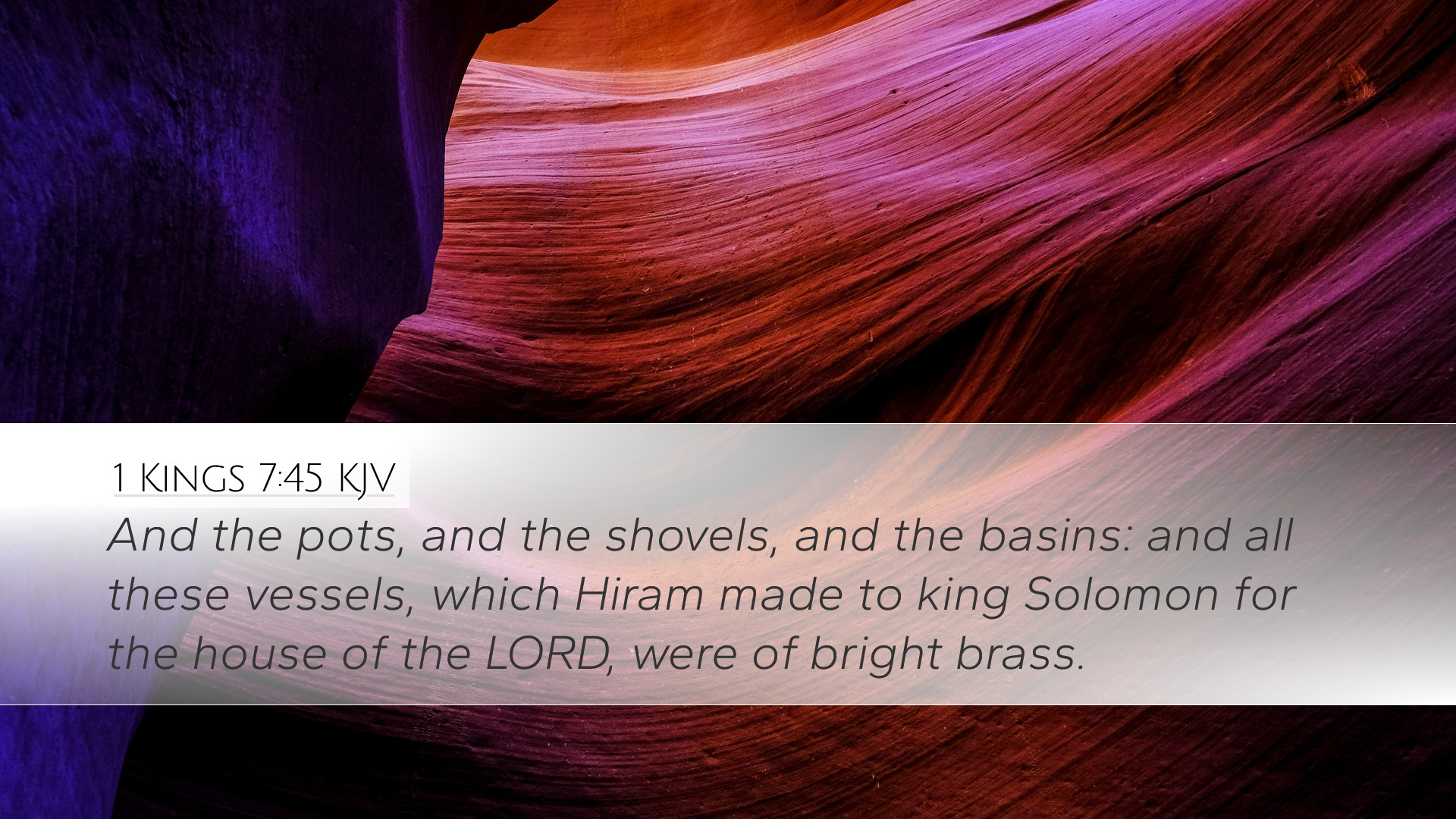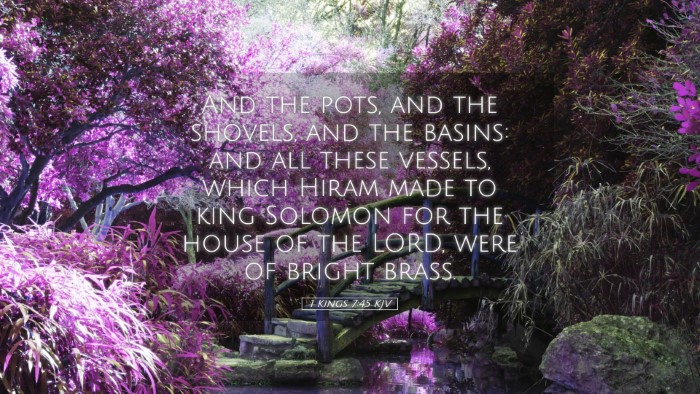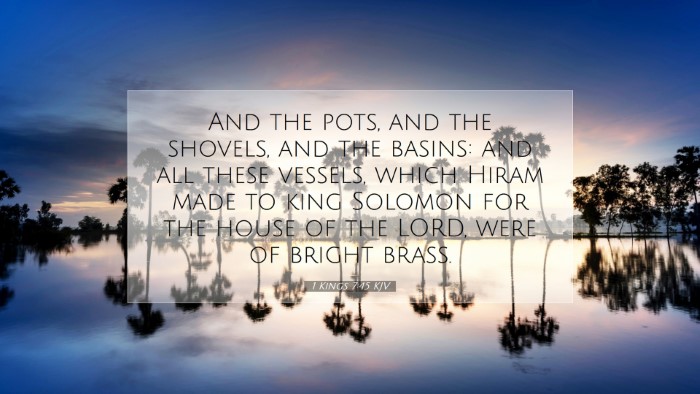Commentary on 1 Kings 7:45
Verse: 1 Kings 7:45 - "And the pots, and the shovels, and the basins, and all these vessels, which Hiram made to King Solomon for the house of the Lord, were of bright brass."
Introduction
This verse concludes the detailed account of the materials and vessels prepared for the temple built by Solomon, emphasizing the significance of craftsmanship and materials in the service of God. The use of 'bright brass' indicates not just the quality of the materials but also the beauty and inherent value attached to items used in worship.
Historical Context
The crafting of the temple under Solomon, assisted by Hiram of Tyre, marks a notable moment in Hebrew history. Hiram, known for his skills in metalwork and craftsmanship, provided materials and experience that culminated in the construction of a temple that was meant to be not only a dwelling place for the Lord but also a symbol of Israel's national identity.
Insights from Commentaries
-
Matthew Henry's Commentary
Henry points out that the items listed in this verse symbolize the tools and implements necessary for the religious practices of Israel. He notes that each vessel signifies an important aspect of worship, indicating that they play a role in maintaining the holiness of the temple space. Henry emphasizes that the craftsmanship reflects God's glory and the reverence with which we should approach worship.
-
Albert Barnes' Notes
Barnes highlights the "bright brass" as symbolic of purity and the light of God's presence. According to Barnes, the vessels were made for practical use but were also a testimony to the beauty and orderliness of God's house. He comments on the importance of quality in worship, suggesting that God is deserving of our best, both in offerings and in the care of His house. Barnes further notes that these vessels illustrate the necessity for preparation in our approach to God.
-
Adam Clarke's Commentary
Clarke emphasizes the significance of Hiram’s work, discussing how the finely crafted articles serve a dual purpose: they fulfill ritualistic functions while also decorating the temple, underscoring the beauty of holiness. He comments on how the descriptions in this passage inform us not only of the physical beauty of the temple but also the spiritual implications of creating a space dedicated to God — a place where heaven and earth meet.
Theological Implications
This passage invites readers to contemplate the role of craftsmanship and beauty in worship. The emphasis on 'bright brass' suggests that God desires excellence within His house, a theme echoed throughout Scripture (see Malachi 1:6-8). Furthermore, it speaks to the interconnectedness of the sacred and the aesthetic — how beauty in worship can enhance our experience of God.
Applications for Modern Worship
-
Preparation for Worship:
The act of preparing the temple vessels serves as a metaphor for personal preparation in worship. Just as Hiram presented his finest work, congregants today are called to present their best selves and offerings to God.
-
Value of Excellence:
The quality and beauty of the temple vessels remind us that God deserves our utmost dedication and excellence, whether it be in our liturgy, music, or the very spaces we gather in to worship.
-
Holiness in Worship:
Each vessel signifies the importance of approaching God with reverence and awe. Worship should echo the holiness of the space we create and the intentions of our hearts.
Conclusion
In 1 Kings 7:45, the mention of the vessels of bright brass serves as a poignant reminder of the importance both of beauty and functionality in the worship of God. It invites modern believers to examine how they approach worship, calling for a blend of preparation, excellence, and reverence in all that concerns the house of the Lord.
As we deepen our understanding of such passages, we are reminded that every detail in worship reflects our relationship with the Divine and ought to inspire both humility and effort in our spiritual lives.


